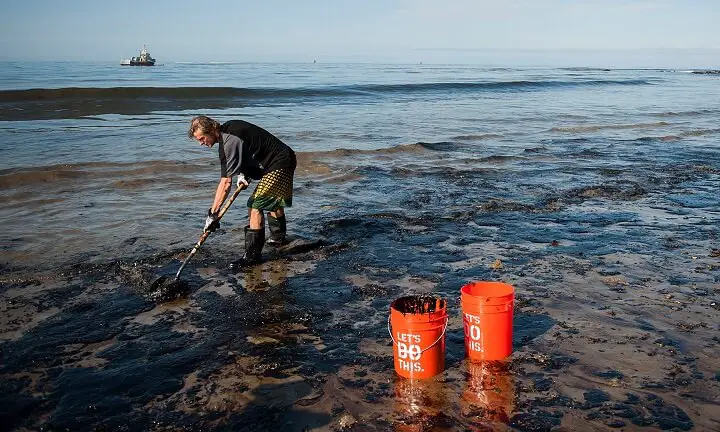Plains All American Pipeline has agreed to resolve claims that its negligence caused a 2015 oil spill near Santa Barbara, California with a $230 million settlement. It is expected to benefit the following two classes of members:
- The Fisher Class includes individuals and businesses who owned or worked on a vessel in operation as of May 19, 2015, that landed commercial seafood in California Department of Fish & Wildlife (CDFW) fishing blocks 654, 655, or 656 or who landed commercial seafood, except groundfish or highly migratory species, in CDFW fishing blocks 651-656, 664-670, 678-686, 701-707, 718-726, 739-746, 760-765 or 806-809 between May 19, 2010, and May 19, 2015. This class also includes individuals and businesses who purchased such commercial seafood directly from the aforementioned fishers and re-sold it at the retail or wholesale level.
- The Property Class includes those who owned or leased residential beachfront property with a private easement to a beach where oil washed up as a result of the 2015 Santa Barbara oil spill on May 19, 2015. This class includes property owners whose beach oiling was categorized as heavy, moderate, or light.
Settlement Website: PlainsOilSpillSettlement.com
Objection Deadline: 08/19/2022
Exclusion Deadline: Since the settlement class was certified, there isn’t any exclusion deadline. Rather the class members had the opportunity of opting out when the classes were certified.
Claim Form: https://www.plainsoilspillsettlement.com/claim
Deadline For Submitting Claim Form: 10/31/2022
Final Hearing Date: 09/16/2022
Settlement Amount: $230 million
Potential Claim Amount: Variable
Proof Of Purchase: Class members won’t have to submit individual appraisal letters, property records, or other documents for getting the payment unless it is necessary to verify membership or identity in the class for resolving disputes or as otherwise requested by the settlement administrator. The administrator will identify class members and determine settlement payment amounts by relying on the analysis of the plaintiffs’ experts and CDFW Landing Records.
A 24-inch underground pipeline called Line 901 operated by Plains All American Pipeline ruptured and released crude oil accidentally along the coast near Refugio State Beach in Santa Barbara Country on 19th May 2015. The oil washed up the beaches and coastal properties causing the residents of coastal homes to lose the enjoyment and use of their homes. This led to an investigation by the U.S. Department of Transportation’s Pipeline and Hazardous Materials Safety Administration which linked the oil leak with ineffective protection against external pipeline corrosion. Plains All American Pipeline allegedly failed to detect and offer a resolution to this corrosion. This caused leakage of 2934 barrels of heavy crude oil from the pipeline out of which 500 barrels entered the Pacific Ocean.
Property owners and fishermen affected by the oil spill took legal action against Plains All American Pipeline. The CDFW closed a 138-square-mile zone from Canada de Alegria by Gaviota State Beach to Coal Oil Point in Isla Vista from fishing for 41 days causing long-term harm to commercial fishing in the affected class blocks. The plaintiffs in the Santa Barbara oil spill lawsuit have claimed that the company’s negligence resulted in the oil spill and subsequent damages to the beachfront properties and fishing zones. The oil spill caused reduced catch for certain species of seafood resulting in commercial fishers and fish processors suffering significant financial losses. Plains All American Pipeline has agreed to pay $230 million to resolve these allegations despite not admitting any wrongdoing. This constitutes a $46 million settlement with property owners and a $184 million settlement with fishermen.
According to the settlement terms, both classes of members are eligible for cash payments. The payments to Fisher Class members will be determined according to the landing records obtained from the CDFW. The share of the settlement fund for each class member will be proportional to the number of fish purchased or landed. Payments to the class members will depend on the degree of oiling experienced by each coastal property, the duration for which the property experienced oiling, and the value of the property. These factors will be considered in computing the proportional share of each class member to the settlement fund.

